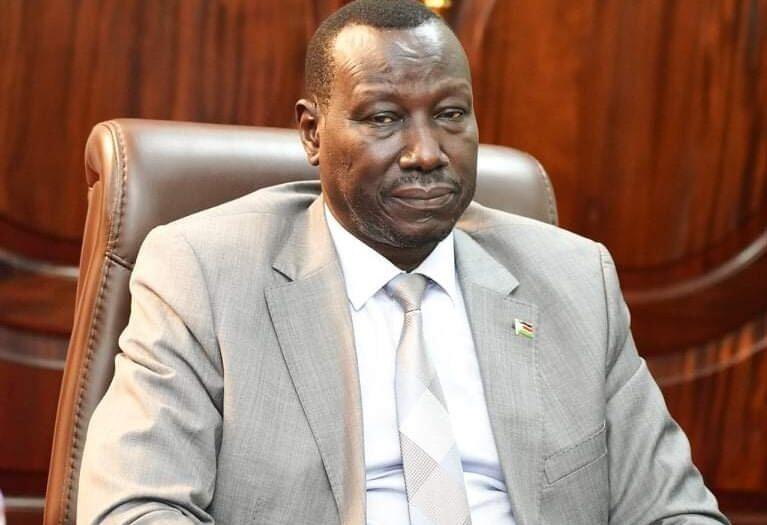Africa-Press – South-Sudan. The lawmakers have adjourned the discussion on the Emolument Act after the finance minister, Agak Achuil [pictured], failed to appear before the house yesterday.
John Agany Deng, the Chairperson of the Information Committee, said the emolument legislation could not be discussed in the absence of the finance minister.
The second deputy speaker in charge of administration and finance, Parmena Ewerial Aloung, who was tasked with chairing the meeting, had to adjourn the sitting.
“So the adjournment was made on the basis that the minister is preoccupied, and I believe that he will be able to avail himself sometime tomorrow, and then we can address it.”
The Emolument Act covers the payment that is to be made to those who occupy constitutional positions, including, members of the national legislature and civil servants who are contracted by the government.
‘‘They are all compatible. The constitutional post holder’s emolument must be reconciled with the pay of civil officials, and it must be in accordance with the laws,’’ Agany said. Agany said the emolument act is not an increase, but rather something that is altered according to the law depending on the country’s situation.
“You pay the civil servants according to the grade of public service [but] you cannot pay any contracted element in the country without that law. The public service has to upgrade to show the grades, and along with that grade, every contracted civil servant will be paid,” he explained.
“The constitutional post holders are not civil servants and for that matter. They have a law called the emolument act which can regulate their payments, so it is not the question of increasing this and reducing that,” he stressed.
Agany reiterated that the emolument act is intended to govern what is owed to constitutional post holders and that it must be paid lawfully in accordance with international, regional, and other regulations, which some may refer to as the financial procedure.
When we are talking about civil servants, we talk about salaries, and the salaries are structured according to the grades that you are appointed against because you cannot be paid without knowing your grade, ” Agany said.
According to Agany, MPs and other constitutional post holders in South Sudan are underpaid. He blamed the poor remuneration on the country’s current predicament.
He said a member of parliament is paid SSP 9,400 while a minister is paid SSP 10,000. He pointed out that the SSP 9,000 MPs’ wages are not paid every month, and that they have only been paid for August since their designation as legislators.
“So you could see how grievous it is that even if you say you have to pay SSP100,000 per each constitutional post holder, the government will not meet it.
“It is better that you find some means of overlapping it so that if the government could, later on, pay anything, it should be equivalent to the situation of the market and also go in parallel with our civil servants,” he emphasised.
For More News And Analysis About South-Sudan Follow Africa-Press






